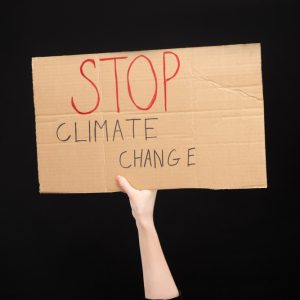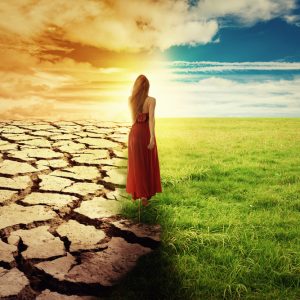Climate change has a lot of adverse effects as far as your mental health is concerned. It can force you to undergo mood swings, depression, and stress, and things might even get worse. An increase in ambient temperatures leads to an escalation in aggressive and violent behavior, too. A new study conducted recently gives out an abridgment of three distinctive ways how your mental well-being can get affected by hotter and extreme weather conditions and how low-income Americans, and especially the women, become more prone to it and reel under its severity.

Climate change is nothing short of a global challenge that has steadily worsened and brought about drastic consequences on mankind and the environment, and now, it has brought about the rise of mental health problems across the world. A research team examined the connection between climate change and human behavior, and the study was guided by real-life behavioral patterns of people from over 260 cities across the United States. All of them participated in the Behavioral Risk Factor Surveillance System, a health survey that was conducted by the Centers for Disease Control and Prevention and has been in operation since 1984.

Approximately two million people who participated between 2002 and 2012 were asked regarding the extremity and severity of their mood swings and for how long they experienced deteriorating mental health within the past 30 days. The responses were recorded, and the participants were divided into two groups – those who experienced poor mental health in recent times, and those who didn’t. Though the researchers agreed that this was not anywhere close to a proper assessment of an individual’s actual psychiatric condition, the participants were arbitrarily selected to represent America in general.
A participant’s location was used to assess its weather conditions and match it with an individual’s mental health status. Some individuals are more vulnerable due to an exposure to extreme heat. During the summer months, a rise in criminal and aggressive behavior is observed, corroborating the fact that high temperatures are directly linked to aggression and violence. Individuals who are at the bottom of the economic ladder are more likely to fall prey to the high temperatures than those who belong to the higher stratum. In fact, more violent suicides are pretty common with the soaring heat.

A significant increase in temperatures can force people to relocate and leave their roots behind. Their normal lives are affected to a great extent. Industries are threatened by extreme heat and can shut down any time, forcing the workers into unemployment, and thus hampering their livelihood. The anxiety of not being able to earn the daily bread amplifies the risk of suicides. Hot weather prevents an individual from working out, thus depriving him or her of a sound sleep at night. Less sleep leads to a greater risk of stress and depression.
A change in climate can bring about disasters such as floods, bush fires, and hurricanes, which may be all connected to psychiatric disorders. People who underwent life-threatening situations are most likely to develop posttraumatic stress disorder or PTSD. PTSD might set in months to years after an individual goes through a disaster. It can adversely affect the quality of life and bring in substantial emotional distress, too. Such people are also at an extreme risk of developing adjustment disorder and acute stress reaction. Such disorders may be abated by regular treatments at rehabilitation centers.

A change in the climate and extremely high temperatures often causes droughts and crop failures. A crop failure leads to an economic distress. Moreover, there is an alarming rise in the expenses of food and other commodities in the region, making life tougher for a farmer. Unable to make basic purchases, sustaining their family gets tougher for a farmer, and they may soon find themselves in the debt trap. Such a situation often leads to criminality, sickness, or even drastic ends. Majority of the farmers reside in rural areas whereas medical and healthcare facilities are concentrated in the urban regions. Provisions should be made in order to make it easier for this section of the population to access those services.
Aside from causing natural disasters and deadly catastrophes, climate change affects an individual’s mental health in several ways. This global problem leads to bigger and more horrible consequences with the passage of time. An increase in psychological distress is observed, and human systems become prone to substantial risks. According to researchers, a sound mental health is imperative in an individual’s social, economic, and personal well-being. And right now, we need to focus on finding ways in curbing the effects of climate change in our lives and in our environment.





